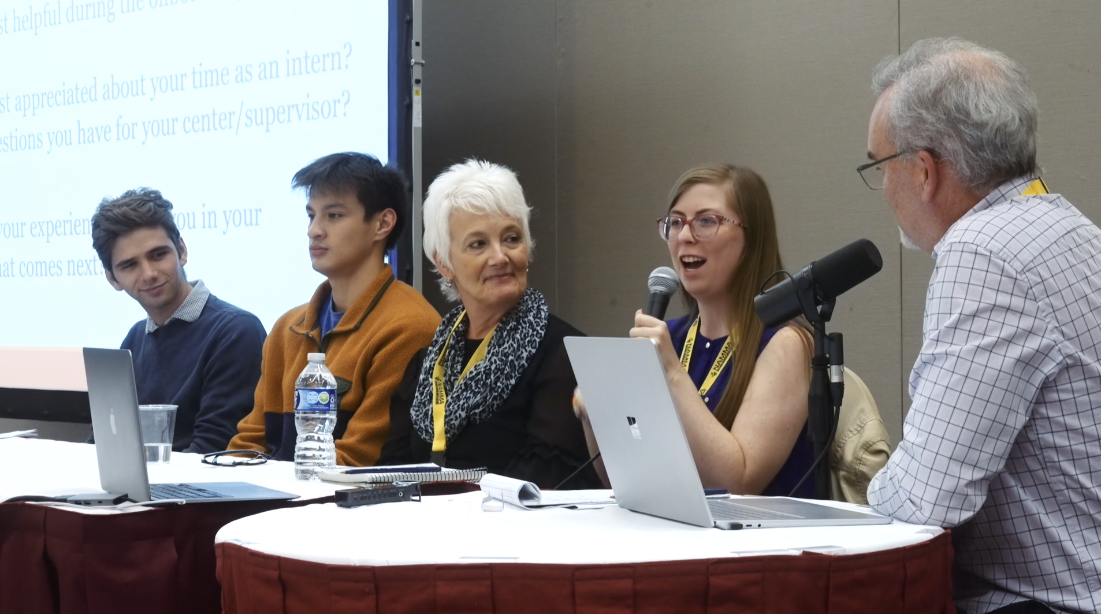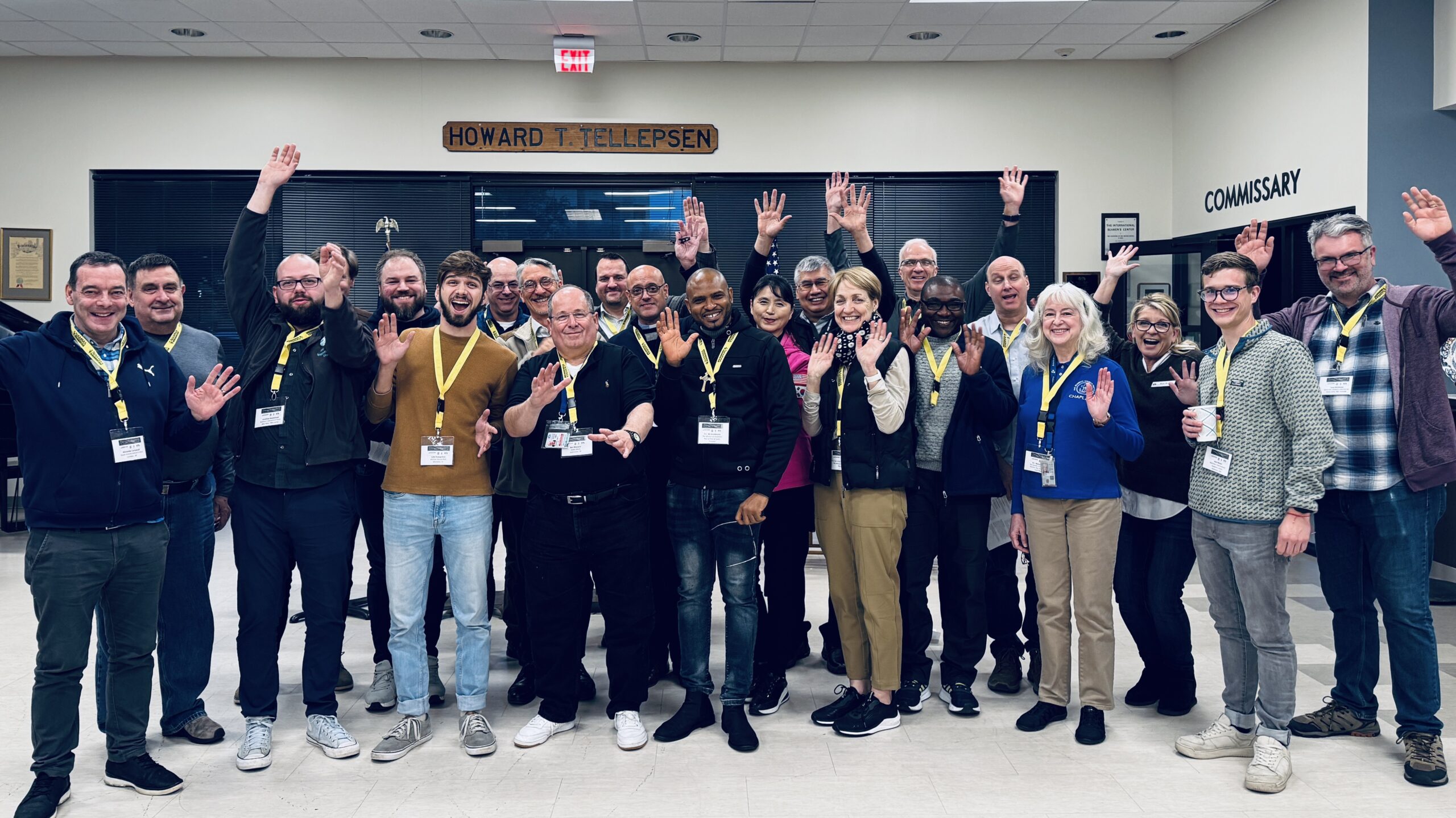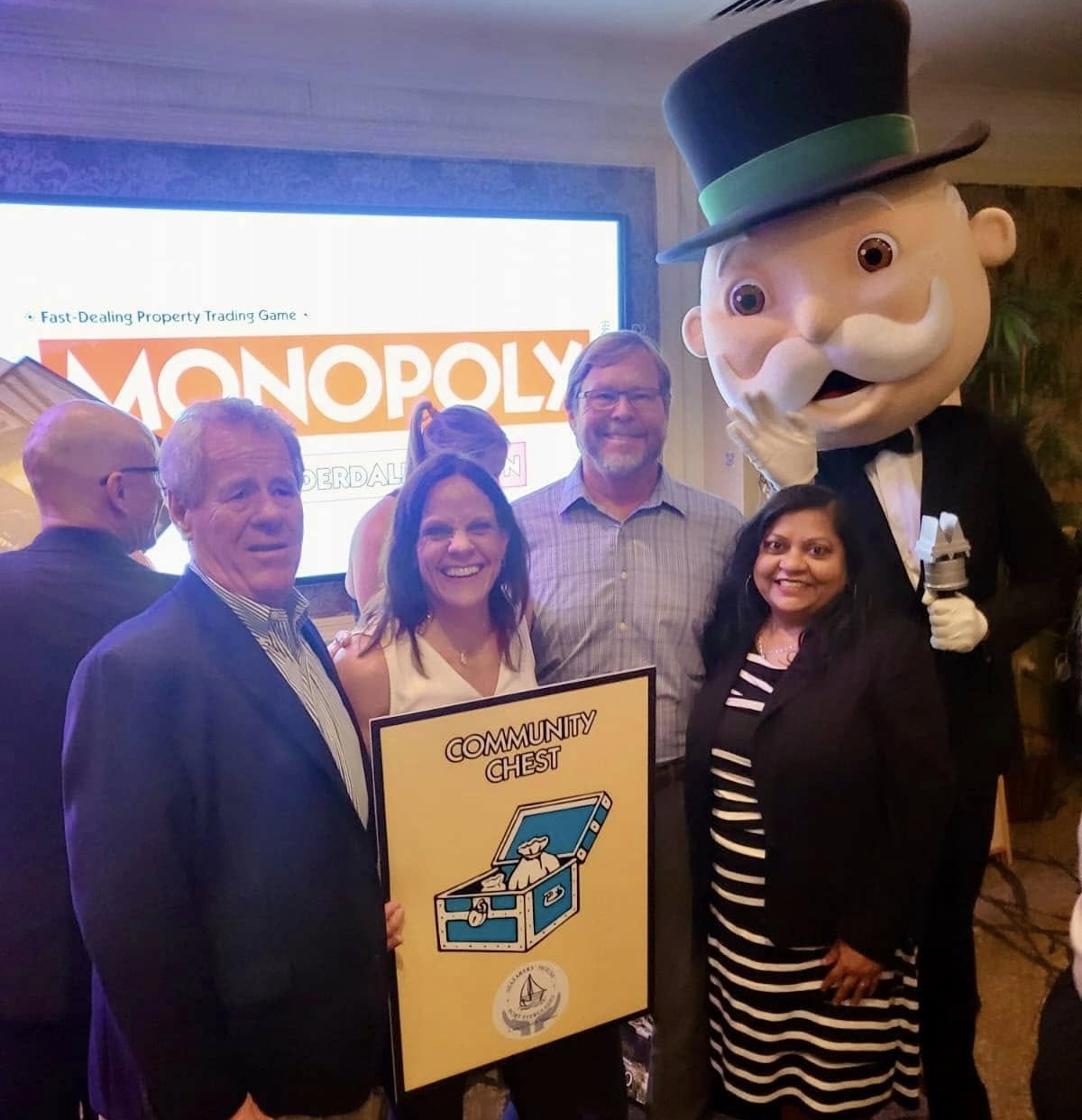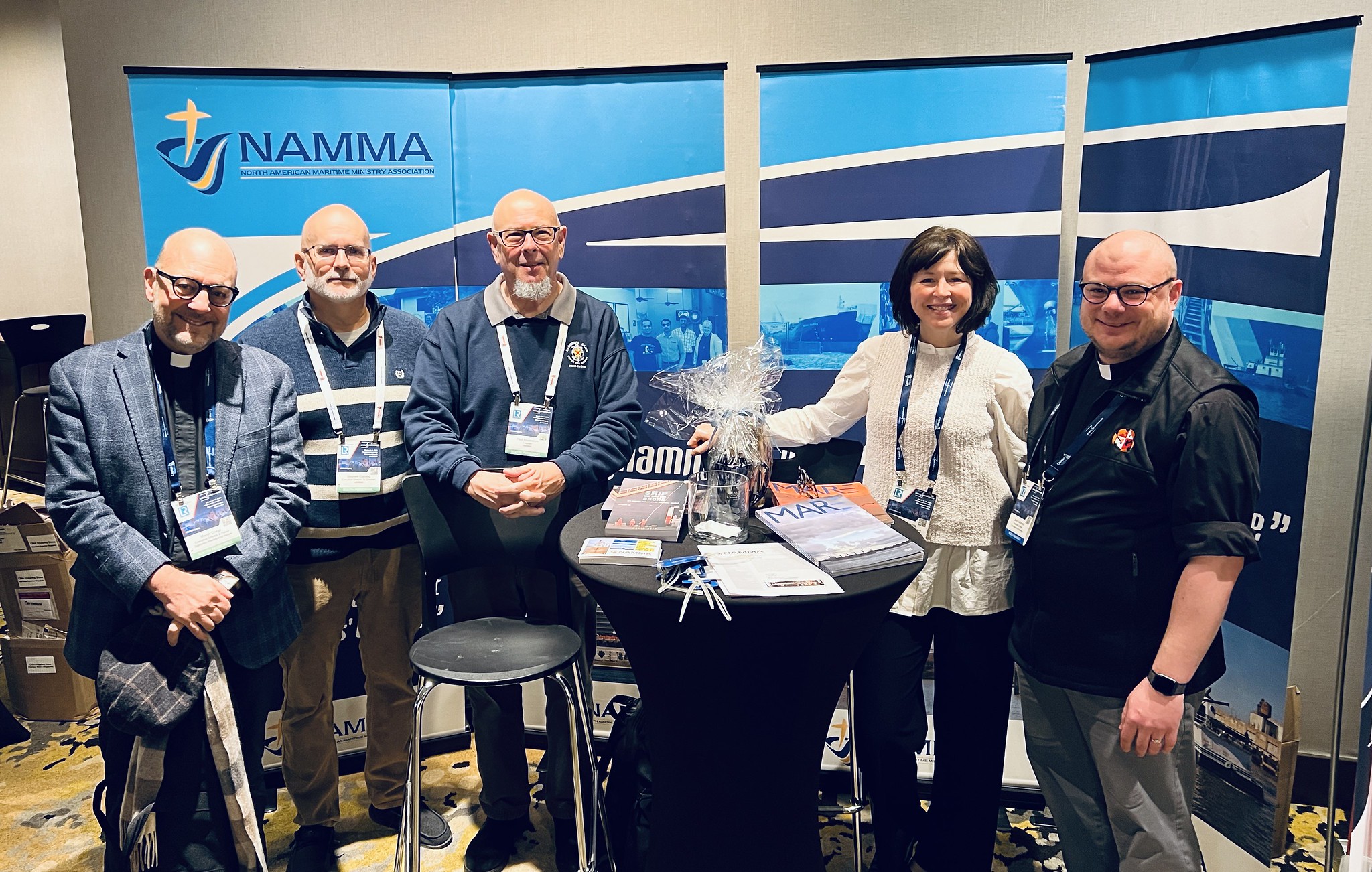At the 2024 NAMMA Conference in Newark, NJ, a lively panel discussion featuring interns from the NAMMA Summer Intern Program shared valuable insights into what makes an internship successful. Moderated by Rich Shively from the Seattle Seafarers’ Center, the session brought together interns from diverse seafarer ministries across the country, including Lisa Hardy from Canaveral, Luke Evangelista from Port Manatee, Holly Ross from Seattle, and Aaron Remulla from Portland, Maine. Together, they explored the elements that made their internships impactful, with a focus on best practices that could apply broadly to intern programs beyond the maritime sector.
Rich opened the conversation with a relatable anecdote about feeling uncertain during his own early career. He emphasized that a supportive environment, where interns feel connected to mentors and team members, is essential to helping them grow into their roles. “At one point, I realized I really had no idea what I was doing,” he laughed, “but the people around me guided me through.” Rich’s introduction set the tone for a discussion about the importance of mentorship and community in any internship program.
Luke Evangelista, an intern from Anchor House Mission at Port Manatee, shared how the structure and mission of the program aligned with his desire to make a meaningful impact. “I wanted to do work that felt valuable and could lead to something,” he explained. Luke’s experience underscored how critical it is for interns to feel that their work matters and that they are contributing to something larger than themselves. Providing a sense of purpose and connecting tasks to broader goals can be powerful motivators for interns.
Aaron Remulla, who interned with Seafarers Friend in Portland, Maine, found the real value of his experience in connecting with the people he was serving. Growing up with parents in the Navy, Aaron was aware of the maritime world but hadn’t previously understood the demanding work of seafarers. “It’s just hard work,” he reflected, expressing newfound respect for the resilience and dedication of the people he met. Aaron’s insights reinforced the value of experiential learning and direct engagement with people or projects in an intern’s field of interest. His experience highlights the importance of hands-on opportunities that bring theoretical knowledge to life and build empathy and understanding.
Lisa Hardy, from Canaveral Port Ministry, brought a different perspective to the panel as one of the older interns, jokingly calling herself the “grandma” of the group. Having moved across the country for her internship, she shared how critical it was to have independence while also knowing she had support from mentors and colleagues. Lisa described her internship as an experience filled with what she called “divine appointments”—unexpected, meaningful connections that helped her feel grounded and motivated. Lisa’s story illustrates the importance of flexibility and autonomy, balanced with support, for creating an empowering and fulfilling internship experience.
Holly Ross, a Jesuit volunteer at the Seattle Seafarers Center, admitted that her internship opened her eyes to an industry she had not previously thought much about. Coming from a landlocked city, she said she initially didn’t understand the scope of the maritime sector or how goods arrived on store shelves. “I really wanted to learn more about the maritime world,” she shared, explaining how the program provided resources and hands-on experiences to help her understand the big picture. Holly’s reflections are a reminder that interns, particularly those new to an industry, benefit greatly from context and education around the sector they’re working in. Reading materials, structured onboarding, and access to knowledgeable team members were all instrumental in helping Holly make the most of her experience.
The interns’ collective experiences highlighted several key themes for successful internship programs. First, meaningful work is essential; interns should feel that they are contributing to real projects with tangible impacts. Second, mentorship and community support help interns build confidence, navigate challenges, and feel connected to the organization. Third, providing context and opportunities for experiential learning enables interns to gain a comprehensive understanding of the field. Lastly, a balance of autonomy and guidance fosters independence while ensuring that interns feel supported.
Rich closed the session by reinforcing the importance of these elements, encouraging attendees to consider them when designing or refining their own internship programs. “It’s not just about giving interns tasks,” he said. “It’s about giving them the tools, the mentorship, and the environment to grow.”





